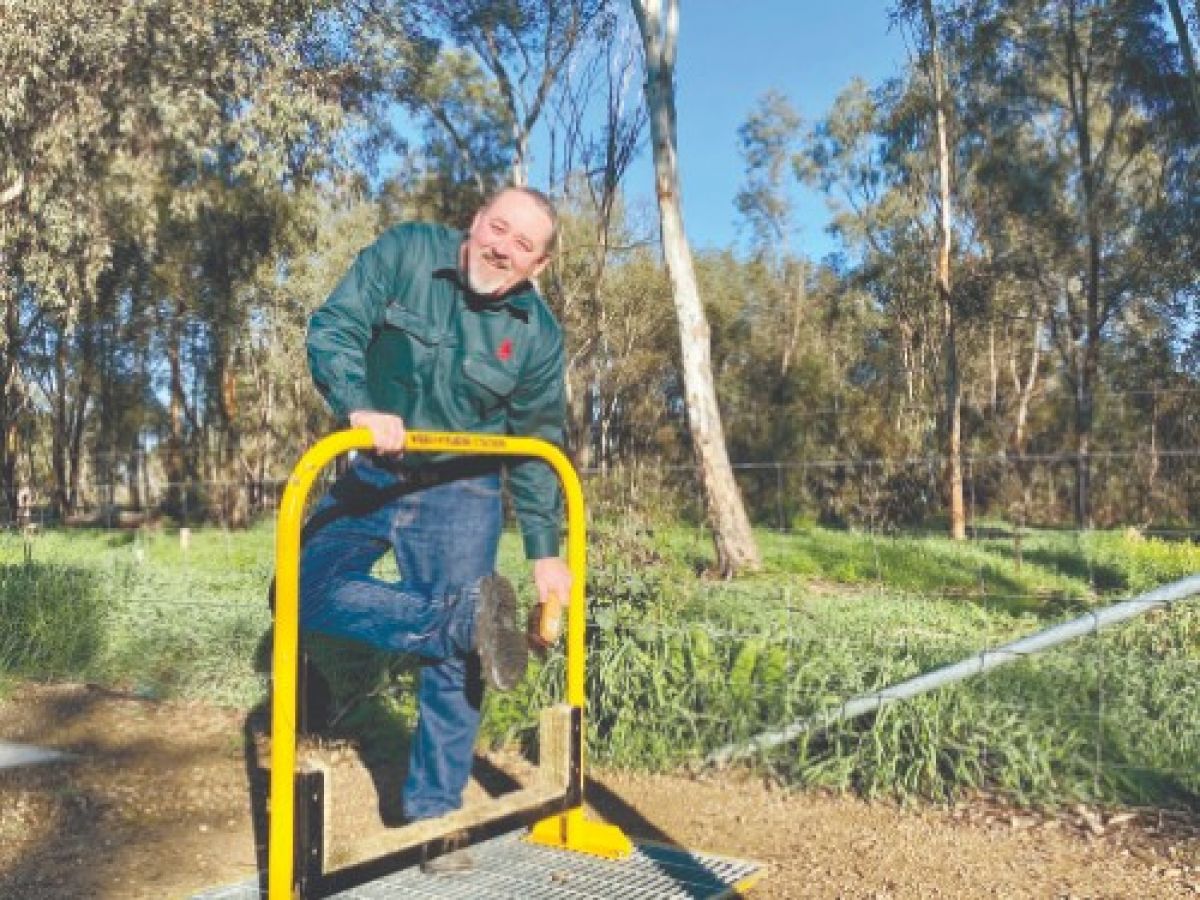
Brush it off: the true cost of weeds
Published: 10 Jul 2020 2:44pm
Brush it off: the true cost of weeds
If you see a weed hygiene station on your travels – please use it. By brushing off your shoes, bike tyres and pets, you’re helping protect Wagga Wagga’s natural reserves from the insidious spread of weeds.
Wagga Wagga City Council has installed an additional weed hygiene station along the Wiradjuri Trail and is asking the community to use them – both when joining the trail and leaving it.
Environmental Management Team Leader Tony Phelps said Council began installing the weed hygiene stations in 2018 in order to protect the natural reserves surrounding the city.
“A lot of our natural areas are relatively free from weeds,” Mr Phelps said.
“We want to keep it that way.
“Weed seeds can attach to your shoes, your clothes, your bike tyre treads – even your pets. Just the soil on your shoes may contain minute seeds that could cause a weed infestation.”
Before you hit the trail, hit the station
When entering an area with a weed hygiene station, stop and brush yourself, your pet and your equipment down. Any dirt, and seeds in that dirt, will fall into the station’s sump rather than be taken in to the reserve.
Brushing yourself down on the way out is equally important, as you may have picked up seeds from within the natural reserve which may be considered weeds in areas you visit later.
To know your enemy, grow it
In addition to stopping weed seeds from entering Wagga Wagga’s natural reserves, the weed hygiene stations act as a collection point and warning system for Council’s Vegetation Management Team.
“When we clean the sump out, we collect the dirt and seeds and take it back to our hothouse,” Mr Phelps said.
“We actually nurture the soil; water it, keep it warm and see what grows. Many seeds are minute, so the only way to know for sure what’s in the soil is to grow it. As the seedlings develop into plants, we can identify them – then we know what we’re dealing with.
“A lot of weeds, like cane needle grass, can be hard to find amongst the other grasses. But if we grow cane needle grass from a specific weed hygiene station, we’ll know to keep our eyes out for it in that area.”
The impact of weeds
Weeds cost the agricultural industry billions of dollars each year through weed management and production loss. In natural areas, weeds can impact the birds and mammals who rely on native vegetation for food and shelter.
“People visiting our natural reserves go out there to enjoy the bush and the native animals,” Mr Phelps said.
“Once you get weeds infesting those areas, they can outcompete the native plants. Once the native plants disappear, so do the animals. It reduces the appeal of going out into the bush. A lot of those weeds are quite spiky as well; they’re not good for either you or your pets to walk on, let alone your bike tyres to ride over.”
Worth protecting
Regularly using the weed hygiene stations is an easy way to help preserve the city’s reserves.
Part of the Wiradjuri Trail travels through the Birramal Conservation Area, consisting of 117 hectares of former farmland. Building on the existing old-growth vegetation, a team of Council staff and community volunteers planted approximately 1500 plants in the area last year for National Tree Day.
“We’ve been working hard building on that vegetation,” Mr Phelps said.
“All those plants help improve the bush, create habitat for the native animals, and bring it back to the pristine condition our community loves to walk and ride through.
“We’re asking everyone to use the weed hygiene stations each time they hit the trail and help us keep our reserves weed-free.”
Homegrown weed hygiene stations
Wagga Wagga’s weed hygiene stations were designed and developed by Council’s Vegetation Management Team.
The stations took out a Local Government NSW Excellence in the Environment Award in 2018.
Weed hygiene stations are located at:
oPomingalarna
oMarrambidya Wetland
oWiradjuri Reserve
oBirramal Conservation Area.
